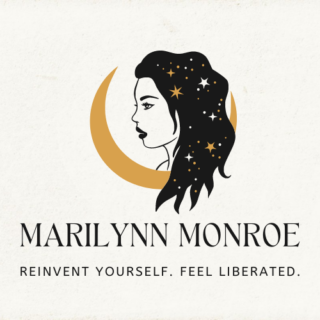What is ADHD?
“Oh, you have ADHD? Doesn’t that mean you can’t sit still or focus? You can EASILY fix this yourself, right?”
Wrong. ADHD is so much more than the inability to stay focused. It’s a nightmare personified that causes you to lose motivation and interest in everyday life. It can consume you whole until you’re left feeling like a fragment of the human you once were.
“You’re 32 years old. How can you have ADHD? Only children have ADHD.”
Wrong. Research shows that adults are also greatly affected by ADHD and that it has no age restrictions.
ADHD, or Attention deficit hyperactivity disorder, is a neurodevelopmental disorder that affects executive functioning. It’s categorized into three different types:
-Predominantly inattentive: They mainly have trouble starting, staying focused, and finishing tasks on time.
-Predominantly hyperactive-impulsive: Fidgety, unable to sit still for long periods, often acts without thinking things through.
-Combined type: a mixture of the two above (which is what I happen to be personally “blessed” with- No sarcasm intended).
What does ADHD look like in adults? Adults with ADHD may have trouble with things such as:
- Finding motivation and maintaining it
- Staying on task and completing tasks or projects
- Maintaining steady employment
- Time management skills
- Procrastinating, also known as “ADHD paralysis”
- Emotional dysregulation (for example, rejection-sensitive dysphoria)
- Inability to develop and maintain healthy relationships
- Memory issues
- Low self-esteem
- Anxiety
- Depression
- Extreme fatigue
- Brain fog
- Very loud and exhausting inner dialogue at all times that they can’t seem to turn off
- Substance use disorder
Keep in mind while ADHD presents challenges, it also comes with unique strengths. Many individuals with ADHD are highly creative, innovative, and resilient. Their ability to think outside the box and approach problems from different angles can be valuable assets in various fields. By shifting the focus from deficits to strengths, society can better appreciate the contributions of those with ADHD.
The harmful impact of stigma
Some simple ways we can start breaking the stigma of adult ADHD:
-By educating ourselves
-Getting the facts instead of assuming and judging
-Normalizing conversations about ADHD and encouraging empathy
-Stop shaming people who need medication to properly treat their ADHD, even if it’s a controlled substance
We can create an environment where people feel safe discussing their struggles without fear of ridicule or being labeled as drug seekers since one of the main lines of treatment for this condition is to be prescribed a stimulant medication. There are other medication options out there that are also non-stimulant that some people benefit from. It’s up to you and your healthcare provider to decide which class of medication is best for you, if any at all.
Some people are lucky and only need some form of therapy and lifestyle changes to conquer less serious cases of ADHD. For those who do need medication, don’t feel ashamed. Do you think that people who have diabetes or heart disease feel ashamed of taking their meds each day to function? I didn’t think so. Breaking this stigma is essential to fostering understanding, encouraging treatment, and empowering individuals to embrace their strengths.
- “People with ADHD are just using it as an excuse to be lazy and not accomplish anything.”
- “You don’t have ADHD. You’re just a drug-seeker.”
- “ADHD isn’t as serious as other mental health issues.”
- “ADHD only affects children.”
Ways you can help support ADHD and Mental Health Awareness:
- Encourage open and honest conversations – Talking about mental health issues should be as normal as discussing physical health. Just because we can’t see physical wounds on someone doesn’t mean that they aren’t still suffering.
- Be more open-minded and less judgmental – There is so much that we don’t understand unless we experience it ourselves first-hand. Be kind to others. You never know what they may be going through daily that you don’t realize. Especially those of us with ADHD who are already so hard on ourselves for not meeting our expectations. There’s a lot of relief but also a lot of self-loathing involved with our diagnoses. Openly discuss mental health issues with trusted family and friends as well as at work or school.
- Educate yourself and others – Understanding the signs and symptoms of mental health disorders helps identify the possible issues at hand. Knowledge encourages empathy and reduces misinformation.
- Be someone who is there for others unconditionally – Sometimes, a simple act of kindness, such as listening without judgment, can make a profound difference in someone’s life.
- Encourage others to seek help if they need it!- Let them know that there is no shame in reaching out to get proper help if their symptoms start to become unmanageable.
Moving forward
Raising awareness about mental health and ADHD is not just about educating ourselves; it’s about creating a culture of understanding, acceptance, and support. By normalizing acceptance and understanding, we can help those with ADHD thrive rather than feel limited by misconceptions. It is time to shift the narrative from stigma to support, ensuring that every individual with ADHD has the opportunity to reach their full potential!

